Dogs can face many of the same eye problems that humans can. Even though they rely heavily on their sense of smell, eyesight is crucial for your dog’s health and happiness. Luckily, there are many different fresh foods you can feed your dog that will help boost their eye health for years to come. Here are the top 9 foods to boost your dog’s eye health.
#1 – Blueberries
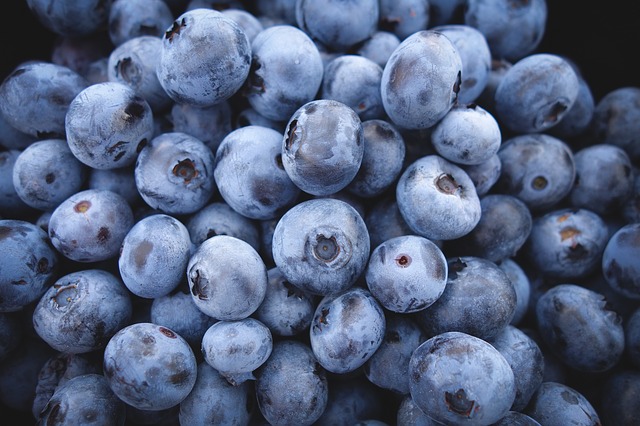
Blueberries contain a bunch of nutrients that are great for your dog’s eyes. Resveratrol, quercetin, and rutin are flavonoids found in blueberries that may help prevent macular degeneration. Anthocyanins are a type of phytonutrient that help protect night vision. Other helpful nutrients in blueberries include lutein, zeaxanthin, selenium, and zinc. Frozen blueberries make great training treats.
#2 – Tomatoes
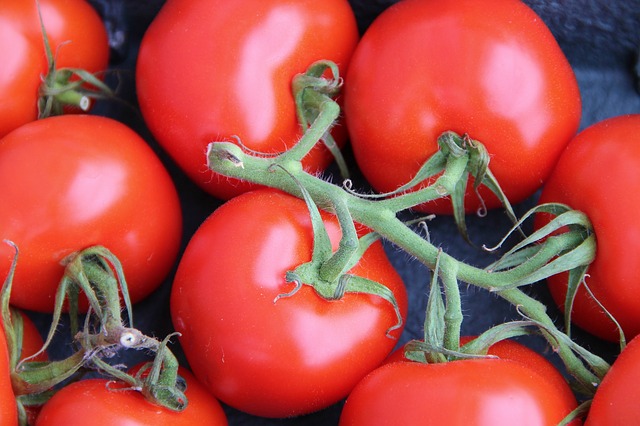
You may have heard about the health benefits of lycopene. It’s a phytonutrient and carotenoid found in bright red fruits and vegetables. Among its benefits, lycopene can help prevent macular degeneration and eye damage caused by the sun. Tomatoes are a great source of lycopene and contain lutein, a phytonutrient. Since lycopene is easier to process when tomatoes are cooked, freezing tomato paste in ice cube trays can make a fabulous treat for your dog.
#3 – Kale
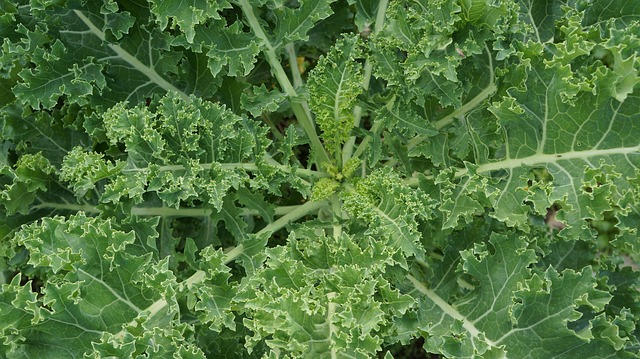
The American Optometric Association says that lutein and zeaxanthin act like “internal sunglasses,” and kale is an excellent source of these antioxidants. The beta-carotene also found in kale helps protect against oxidative stress. For a tasty treat, chop up some kale, drizzle it with some coconut oil, then bake it on a cookie sheet for 20 minutes.
#4 – Broccoli
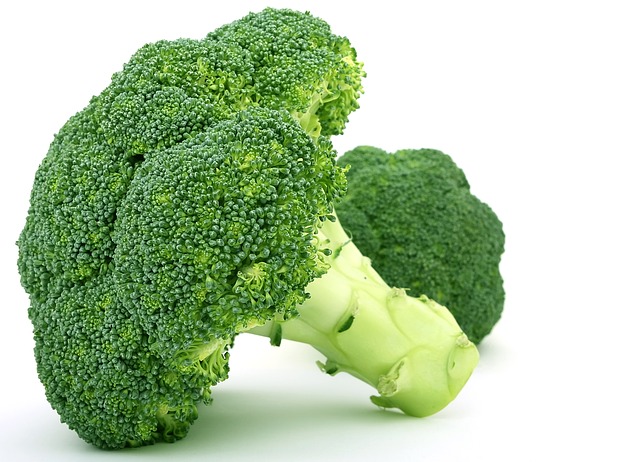
Broccoli contains beta-carotene, zeaxanthin, and lutein. It also contains sulphuraphane, which helps protect the immune system against free radicals. Broccoli is best served to dogs after being boiled for 3-4 minutes. If your dog doesn’t like the texture of broccoli, the cooking water can be added to his meals for a sneaky way to add in those health benefits.
#5 – Carrots

Carrots have been touted as great for vision for many years. They contain lycopene; lutein; pro-vitamin A; beta-carotene; vitamins B, C, D, E and K; and riboflavin, niacin, calcium, potassium, phosphorus, sodium, iron, magnesium, manganese, sulfur, copper, and iodine. What a lot of nutrients from one vegetable!
#6 – Sweet potatoes

Sweet potatoes contain anthocyanins, which help reduce inflammation and free radicals. They also contain a lot of beta-carotene. Sweet potatoes should never be served to your dog raw. You can steam them for 7 minutes or put thin slices sprayed with olive oil on a cookie sheet and bake them at 250 for 3 hours. You can store these sweet potato chips in the fridge for a couple of weeks.
#7 – Pumpkin

Not only is pumpkin great for your dog’s digestive system, but it’s packed with beta-carotene, lutein, zeaxanthin, omega-3, zinc, and phytosterols. Canned pumpkin (pure pumpkin, not pie filling) can be easily added to your dog’s food. You can also bake raw seeds misted with olive oil on a cookie sheet at 300 degrees for about 30 minutes, stirring occasionally.
#8 – Cold-water fish
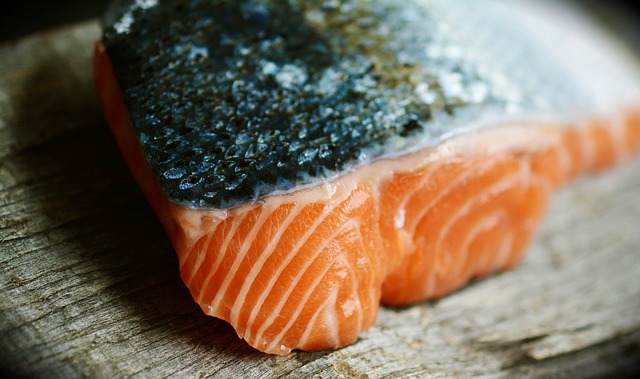
Cold-water fish such as salmon, tuna, cod, haddock, and sardines contain high levels of omega-3 essential fatty acids like EPA and DHA, which are crucial for cell health. DHA, in particular, is 30% of the fatty acids that make up the retina. High levels of omega-3 can even help prevent macular degeneration. Salmon must be deep frozen for 7 days before serving to help kill parasites.
Don’t like handling fish? Worried about mercury contamination? Give your dog the same benefits with our Omega 3-6-9 Select Grain Free Skin & Coat Chews with Pure Antarctic Krill Oil.
#9 – Eggs

A study has shown that eating one egg a day raised the levels of lutein and zeaxanthin in the blood, which helped reduce the chance of getting macular degeneration. The egg a day was not found to increase serum lipids or lipoprotein cholesterol concentrations. Eggs also contain cysteine and sulfur, which are two components of glutathione, which protect eyes from cataract formation. Eggs can be served to your dog raw or lightly cooked.
 Toledo, United States.
Toledo, United States.